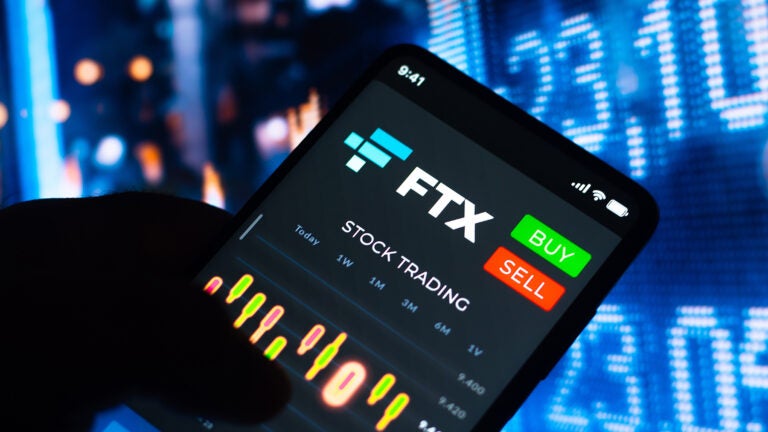
The FTX cryptocurrency exchange filed for bankruptcy on Nov. 11. (Photo/Rafael Henrique, AdobeStock)
Crypto’s reckoning: Bankruptcies, congressional inquiry this week come in wake of FTX’s collapse
USC experts forecast the future of cryptocurrency ahead of congressional hearings on FTX debacle.
A U.S. Senate committee on Thursday holds the first of several congressional probes into what led cryptocurrency giant FTX to its demise, a spectacular failure reminiscent of the 2001 Enron collapse that cost investors and businesses billions of dollars.
Experts note that like Enron, FTX and related company Alameda Research didn’t just cost investors billions of dollars through shady dealings and gross miscalculations. FTX’s downfall has underscored authorities’ concerns about a lack of transparency in the crypto market and has exposed regulatory gaps for Congress and federal authorities to fill.
Picking through the wreckage of FTX is going to be a herculean task.
Robert K. Rasmussen, USC Gould
“Picking through the wreckage of FTX is going to be a herculean task. Just sorting out what assets are actually available to customers is no easy matter for a company that did not keep detailed records of customers’ accounts,” said Robert K. Rasmussen, the J. Thomas McCarthy Trustee Chair in Law and Political Science at the USC Gould School of Law.
Rasmussen warns that it will be years before matters are straightened out.
“It seems as if a substantial amount of assets left FTX over the years,” he said. “Some of these assets went to customers, others went to politicians and still others went to charitable organizations. All of those who received these assets should expect that the new management of FTX will attempt to claw back these assets.”
Crypto safety: A domino effect
While these core elements may prevail in the long run, experts predict turbulent times ahead. Digital currencies and cryptocurrency exchanges like FTX are now under scrutiny by Congress. Companies with ties to crypto now are in the red and may face bankruptcy as the markets reel.
Questions about value and transparency have continued to overshadow cryptocurrencies, even before FTX fell apart, noted Michael Simkovic, a professor of law and accounting at USC Gould and an expert on financial regulation.
“Unlike gold or wheat or oil, crypto does not have any obvious use to businesses or consumers,” Simkovic said. “Cryptocurrencies are illiquid, volatile assets with high transactions costs and a lack of truly transparent pricing. Their valuations are speculative and, due to underregulation, susceptible to manipulation and deception.”
We may soon discover that many cryptocurrencies have little if any value.
Michael Simkovic, USC Gould
Simkovic predicts that companies facing bankruptcy will try to auction off large volumes of cryptocurrency and other forms of business that rely on blockchain technology. Bankruptcy proceedings may also reveal crypto’s true value.
“We may soon discover that many cryptocurrencies have little if any value, and many businesses funded through the issuing of tokens cannot generate sufficient profit and cash flows to justify their pre-bankruptcy speculative valuations,” Simkovic said.
Simkovic mentioned that it’s possible crypto has served another purpose for those who benefit from it — tax evasion — that also could be exposed through investigations.
Is FTX signaling the end of crypto?
Even though the market clearly has cooled and skepticism is high, digital assets expert James Healy at the USC Marshall School of Business believes crypto has a future.
In the long term, the digital assets market will reflect the value that the technology and people in the industry contribute to the economy and society, said Healy, who also is president of Digital Disbursements, a digital payments provider, and founder of investment firm JFH Capital.
“My underlying belief in the power of blockchain primitives like smart contracts, digital ownership, distributed consensus and more remains as strong as ever,” he said.



